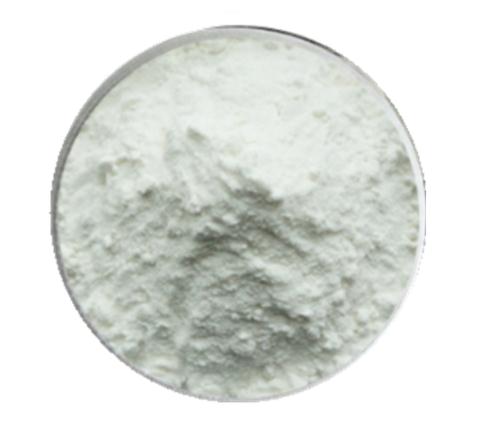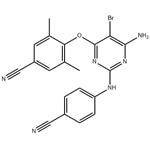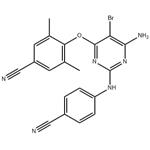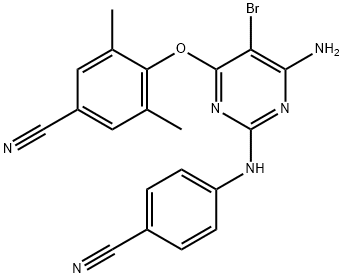Uses and side effects of Etravirine
Etravirine is an antiretroviral agent more specifically classified as a Non-Nucleoside Reverse Transcriptase Inhibitor (NNRTI). Etraverine is used clinically for the treatment of human immunodeficiency virus type 1 (HIV-1) infection.

Uses
Etravirine is used with other HIV medications to help control HIV infection. It helps to decrease the amount of HIV in your body so your immune system can work better. This lowers your chance of getting HIV complications (such as new infections, cancer) and improves your quality of life. This medication is usually prescribed to people who have taken other HIV medications (such as efavirenz, nevirapine, delavirdine) that did not work well enough to control their HIV.
Mechanism of action
Etravirine is a second-generation non-nucleoside reverse transcriptase inhibitor (NNRTI), designed to be active against HIV with mutations that confer resistance to the two most commonly prescribed first-generation NNRTIs, mutation K103N for efavirenz and Y181C for nevirapine.[9] This potency appears to be related to etravirine's flexibility as a molecule. Etravirine is a diarylpyrimidine (DAPY), a type of organic molecule with some conformational isomerism that can bind the enzyme reverse transcriptase in multiple conformations, allowing for a more robust interaction between etravirine and the enzyme, even in the presence of mutations.[10] Other diarylpyrimidine-analogues are currently being used as anti-HIV agents, notably rilpivirine.
Metabolism
Metabolized (in vitro) by the liver CYP450 enzymes: CYP3A4, CYP2C9, CYP2C19. The major metabolites formed by a methyl hydroxylation of the dimethylbenzonitrile moiety retained less than 90% of etravirine's activity.
Side Effects
Nausea may occur. If this effect lasts or gets worse, tell your doctor or pharmacist promptly.
Remember that this medication has been prescribed because your doctor has judged that the benefit to you is greater than the risk of side effects. Many people using this medication do not have serious side effects.
As your immune system gets stronger, it can begin to fight off infections you already had, possibly causing disease symptoms to come back.
You could also have symptoms if your immune system becomes overactive. This reaction may happen at any time (soon after starting HIV treatment or many months later). Get medical help right away if you have any serious symptoms, including: unexplained weight loss, severe tiredness, muscle aches/weakness that doesn't go away, headaches that are severe or don't go away, joint pain, numbness/tingling of the hands/feet/arms/legs, vision changes, signs of infection (such as fever, chills, swollen lymph nodes, trouble breathing, cough, non-healing skin sores), signs of an overactive thyroid (such as irritability, nervousness, heat intolerance, fast/pounding/irregular heartbeat, bulging eyes, unusual growth in the neck/thyroid known as a goiter), signs of a certain nerve problem known as Guillain-Barre syndrome (such as unsteadiness, loss of coordination, trouble swallowing/speaking/chewing, trouble moving your eyes), signs of liver disease (such as nausea/vomiting that doesn't stop, loss of appetite, stomach/abdominal pain, yellowing eyes/skin, dark urine).
See also
Lastest Price from Etravirine manufacturers

US $0.00/kg2025-11-25
- CAS:
- 269055-15-4
- Min. Order:
- 1kg
- Purity:
- 98%
- Supply Ability:
- Customise

US $0.00-0.00/kg2025-08-21
- CAS:
- 269055-15-4
- Min. Order:
- 1kg
- Purity:
- 99%
- Supply Ability:
- 1


